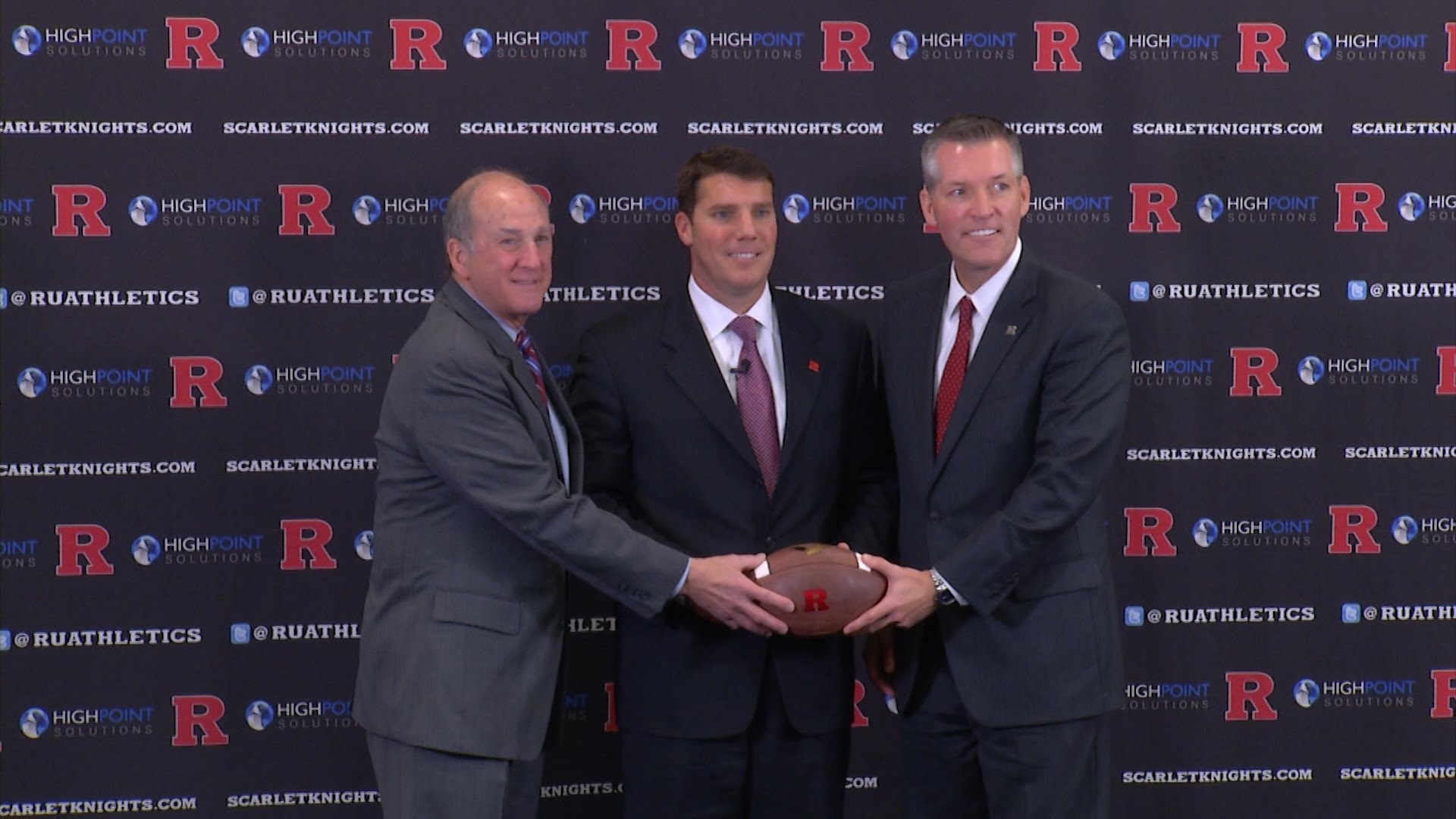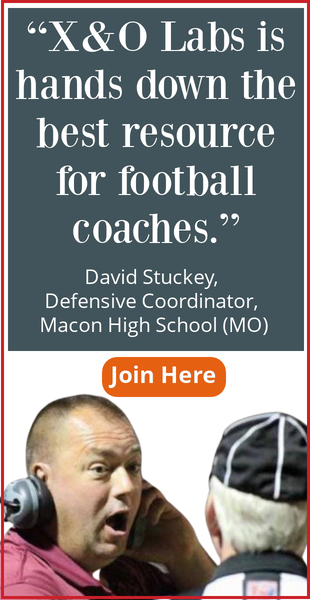By Mike Kuchar
Senior Research Manager
X&O Labs
Twitter: @MikekKuchar
Introduction
 As Rutgers football begins spring practice this week, new head football coach Chris Ash inherits a program that has finished in fourth place or lower in the East division of the Big Ten conference- including one bowl win in the last four seasons- all amidst numerous off the field issues. So in his effort to change the culture at Rutgers, Ash-who has spent the last two seasons as Urban Meyer’s defensive coordinator at Ohio State-has already implemented some of the on the “on edge” coaching methodology that Meyer has used with his programs since his days at the University of Florida. Mike Kuchar, the co-founder of XandOLabs.com, spent time with Coach Ash this winter talking about his plan to change the culture in Piscataway.
As Rutgers football begins spring practice this week, new head football coach Chris Ash inherits a program that has finished in fourth place or lower in the East division of the Big Ten conference- including one bowl win in the last four seasons- all amidst numerous off the field issues. So in his effort to change the culture at Rutgers, Ash-who has spent the last two seasons as Urban Meyer’s defensive coordinator at Ohio State-has already implemented some of the on the “on edge” coaching methodology that Meyer has used with his programs since his days at the University of Florida. Mike Kuchar, the co-founder of XandOLabs.com, spent time with Coach Ash this winter talking about his plan to change the culture in Piscataway.
On Edge Teaching is a philosophy that forces players to respond in uncomfortable situations (both on the field and off). It teaches them how to handle adversity in extreme circumstances.
MK: What have you done so for this off-season to change the culture of the program?
CA: “The first thing I want to do is develop the culture that I want in this program. A lot of it is modeled after what we did at Ohio State, but there are things that I’d like to do differently that I’ve been exposed to at other places also. I first define to my players what culture means. Many coaches throw that term around a lot including me. But you have to step back and think about what the definition is of culture in that program. To us, culture is ‘the only acceptable way to behave and to perform.’ We talk about the three components of that culture as being the following:
- Relentless strain- everything you do in academics or athletics you must strain to be the best that you can be.
- Competitive excellence- putting yourself in position that when your number is called to make a play that you’re ready to make that play. To get to competitive excellence, you must have competitive spirit that means you want to compete in everything you do, from the weight room, the meeting room, the classroom, the off-season drills and in the practice field. If you don’t compete in those areas, you will not compete on a Saturday.
- Brotherhood of trust- this is where team chemistry is developed. Doing it at the unit (position) level. Our ultimate goal here is to have ten units strong and we want each unit on our team to have a tight chemistry and the relationships must be completely strong.
Players need to be continually communicated, educated and motivated to make it happen. That is the process we are in right now.”
MK: In what ways are these three components of culture continually reinforced during the offseason?
CA: “In the off-season, you want to accomplish some specific things. You want to get them bigger and stronger, you want to build their athletic ability, you want to build their toughness, you want to build leadership, you want to build their football skills and lastly you want to build their football IQ. You have to do that in 8 hours a week during the off-season. You can’t slack off on any of those things because rest equals rust. You can’t afford to let any of them be underdeveloped. We build toughness at Ohio State through the artificial adversity we created in our off-season workout. You don’t rise to the level of the occasion; you rise to the level of our training. We use the phrase E+R = O which means events plus response equals outcome. We are an event-based program- we train our players to handle adversity. If you don’t train the players to deal with adversity, they will not be ready for it. We will create a special workout to push them to the limit mentally or physically or change a routine where we ask them to be here at 5 am to see how they respond. We are creating that for good events and bad events so they are ready to respond the right way. “









